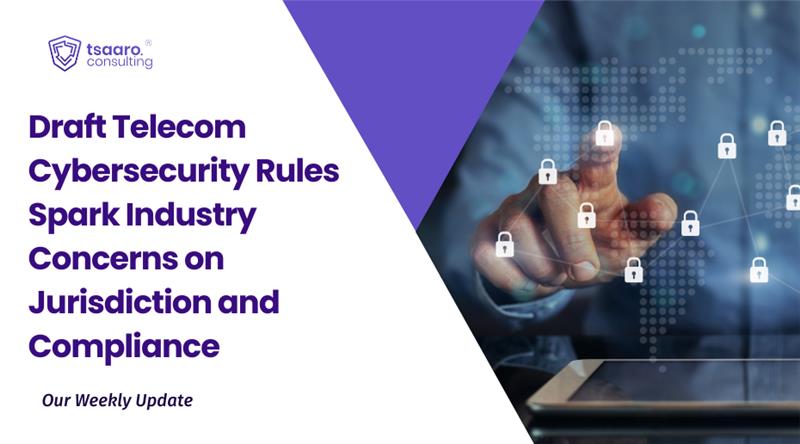INTRODUCTION
The Advancement in Technology has undoubtedly improved the quality of life from banking to entertainment. However, this same advancement has also become a threat to security. From Large Companies to Individuals, security and Data Privacy are becoming necessary in everyday life. The Banking Industry is no exception to this. The IBM Security X-Force Threat Intelligence Index 2023 reports that Finance and Insurance Organizations were the target of nearly 18.9% of all Cyber-attacks in 2022, while Europe and Asia-Pacific experienced almost 33% and 31% of these attacks, respectively. This reinforces the idea that Cybersecurity and Privacy in the Banking Industry are essential in this era of information. This blog post will examine the Importance of Cybersecurity and Privacy and the critical threats and regulations globally that shape Cybersecurity and Privacy in the Banking Industry.
IMPORTANCE OF CYBERSECURITY AND PRIVACY IN THE BANKING INDUSTRY
Adequate Cybersecurity and Privacy measures have been essential in the Banking Industry, without which there could be a significant risk to the Bank’s Reputation, Customer Relations, and much more. Some of the critical reasons for the need for Cybersecurity and Privacy Measures in the Banking Industry are:
- Protection of Reputation: The Reputation of a Company arguably allows a Company to prosper and expand. However, Cyber-attacks and Privacy Concerns often lead to insecurity among consumers. Adequate Cybersecurity measures help prevent any reputational damage by ensuring no such breach of trust occurs, and the Company’s Data remains safe.
- Preventing Financial Losses: One of the main motives behind Cyberattacks is Monetary Gain. Cyber-attacks create a financial burden on the target organizations. Hence, adequate Cybersecurity and emergency measures can help Banks avoid financial losses by ensuring a secure system.
- Increased Customer Satisfaction: Digital Banking in the Market is as essential as Oxygen is for Breathing. A Data Breach can significantly disrupt the operations of Company servers and hinder the ability to use several online features such as Online Banking and UPI. Cybersecurity Measures ensures that there would be no need for any server breakdowns due to Data Breach and provides Customer Satisfaction.
- Avoiding Penalties: Cybersecurity and Data Protection has become necessary, with several countries implementing Data Protection Laws with Penalties for Breach of Compliance. Thus, cybersecurity measures help ensure reduced penalties for failure to protect data.
COMMON CYBERSECURITY AND PRIVACY THREATS IN THE BANKING INDUSTRY
The Banking Industry has made its way through the Digital Revolution with several features making the Banking Sector readily available online. Sensitive Data such as Financial Information and Address Details are available online and are a target for cybercriminals. Hence, it is essential for the Banking Industry to understand some of the critical threats, which are:
- Phishing: Phishing often involves obtaining information such as names, addresses, passwords, account numbers, Banking PINs, and other data by masquerading as a legitimate person. In July 2016, hackers sent a phishing email to a Union Bank of India employee, gained access to credentials, and executed a fund transfer, leading to a $171 Million loss, which was subsequently recovered.
- Ransomware: Ransomware encrypts Important Data in a cyberattack, making it inaccessible to the data owner until they pay a High Cost or Ransom. In 2020, over 90% of Banking Institutions experienced Ransomware Attacks, as estimated.
- Trojan: A Trojan refers to malicious software that appears on the face to be trustworthy. However, the software is a backdoor to access Private Data on a computer or mobile phone. In 2020, nearly 70% of attacks on Financial Institutions came from the Kryptik Trojan Malware.
Also Read Blog Smishing, Vishing, And Phishing, What Are They, And How To Protect Yourself From Falling For It?
CURRENT REGULATORY FRAMEWORKS GLOBALLY FOR CYBERSECURITY AND PRIVACY IN THE BANKING INDUSTRY
Data Breach affects industries beyond banking, leading to the global eruption of Cybersecurity and Privacy Regulations, with governments adapting to the requirements of advancing technology. Nonetheless, the Banking Industry faces constant pressure to comply with Cybersecurity and Privacy measures. Banks and Financial Institutions, considered a Gold Mine of Personally Identifiable Information, must ensure this compliance. Hence, Financial Institutions have a responsibility to their customers to protect their customers’ information. However, due to several regulations and compliances, the Banking Industry must remain on its toes to avoid fines and penalties. Some important regulations are:
General Data Protection Regulation (GDPR): The GDPR plays a significant role in the impact of the Banking Industry in the European Union, with Banks needing to obtain explicit consent from customers to collect and use data and implement appropriate security measures to ensure Data Protection and Cybersecurity. Moreover, the scope of GDPR is not limited to the European Union (EU) but to any Company that has customers residing in the EU. Any non-compliance could lead to fines of up to 4% of the Bank’s Global Annual Turnover.
The California Consumer Privacy Act (CCPA): The CCPA applies to businesses operating in California, including those in the Banking Industry. The CCPA requires disclosing what Personal Data is Collection, its use, and how it is shared. Under this, Banks are required to provide rights to customers, including the Right to Access and the Right to Delete. Any non-compliance would result in penalties and reputational damages to the Bank.
The Digital Personal Data Protection Bill, 2022 (DPDP): The DPDP, a bill pending passage, aims to regulate cybersecurity and privacy concerns in India. It mandates consent for processing Personal Data and grants Data Subjects rights, including the Right to Know the collected information and the Right to Opt Out. The bill requires Banks to implement reasonable security measures to prevent Data Breaches, and failure to comply may lead to fines up to Rupees 250 Crores.
Several other regulations govern the Cybersecurity and Privacy regulations for the Banking Industry. However, the scope and applicability depend on several factors, such as the territories under which the Bank operates, the customers of the Bank, and the Data Protection laws of that territory.
Read more at DPDPB and GDPR: Data Classification
CONCLUSION
Technology has advanced in leaps and bounds and resultantly has brought about the question of Privacy and Cybersecurity. The Banking Industry is no exception to the same. Banks collect customer data ranging from Personal Data such as Name and Address to Sensitive Data such as Banking pins and Account Details. Moreover, cybercriminals have repeatedly been targeting the Banking Industry, as several reports indicate so. Thus, it is becoming crucial for the Banking Industry to implement Adequate Cybersecurity Measures and ensure the Highest Level of Data Protection and, resultantly, stay in compliance with Data Protection laws worldwide.
Looking for expert guidance on data security and privacy to secure data in Banking Industry? Take the first step towards a secure your organization’s data by scheduling a call with our privacy expert team at Tsaaro Solutions today!












